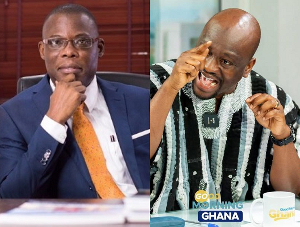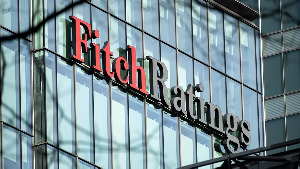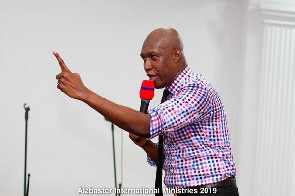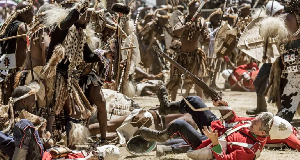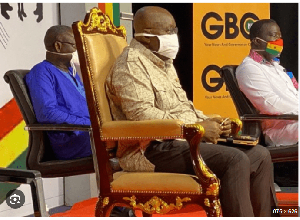Ekow Nelson*
After years of posturing we now know the United Party (U.P.) of Ghana and its descendant party, the New Partiotic Party (N.P.P.), are all words and no delivery. Almost eight years and two full-terms in government, one wonders what they have achieved. Having waited for the opportunity they’ve craved since their short-lived stint in power in 1969, the Right of Ghanaian politics has presided over a distinct lack of vision in government and a poverty of aspiration now pervades all aspects of national life.
Sure, civil liberties have been upheld but so were they, for the most part, under National Democratc Congress (N.D.C) from 1992-2000. On the other hand, there have been no assassination attempts on the president; no bombs in public places and no threats to ministers and their families. The closest danger to the President’s life was an accident involving his car and another vehicle at the Silver Star-Opeibea traffic lights in 2007.
With the benefit of such an auspicious political environment and international goodwill, however, the N.P.P. has only managed to prove it is equally, if not more, corrupt, incompetent, fairly pedestrian and singularly unimaginative – really not up to the job!
In contrast under the first C.P.P. (Convention Peoples Party) government, their historic opponents, the standard of living of the people Ghana was enhanced with capital projects that delivered tangible benefits such as new affordable houses, schools, clinics and hospitals. A network of roads, considered among the best in Africa was constructed. Piped water supply was provided to villages which had never before enjoyed such an amenity and many state enterprises and corporations were set up to provide jobs. These developments increased the living standards of ordinary citizens and at independence, Ghana’s GDP per capita was 17% of the United Kingdom’s (today it is 4%) and higher than India’s whose GDP per capita is now double ours.
Among the new industries the C.P.P. established were two cocoa processing plants, two sugar refineries, a textile printing plant, a glass factory, a chocolate factory, a meat processing plant, and a large printing works at Tema. In addition, work was far advanced on a gold refinery at Tarkwa, cement, shoe and rubber tyre factories, and a factory for the manufacture of pre-fabricated houses. Under the C.P.P., Ghana was beginning to supply local demand for many basic consumer goods, using locally produced raw materials. In contrast, today, there are no job opportunities for the youth many of whom are condemned to be street-side sellers or dog chain peddlers.
Under the C.P.P. the harbour at Takoradi was extended and an entirely new harbour was constructed at Tema with a dual carriageway to connect the new town and port with Accra. The motorway, described by the N.L.C. and their U.P. supporters as an unaffordable luxury remains the best stretch of road in the country and provides the vital link with mainland for much of what we import and export.
Communications of all kinds, telephone, radio, newspapers were developed. Ghana had its own shipping line, the Black Star Line, and its own airline, Ghana Airways – the latter becoming bankrupt under the N.P.P.
State farms established under the C.P.P. cultivated rubber, oil palm, banana, citrus fruits and other crops. Canning and processing plants were built. The agricultural wing of the Workers’ Brigade alone farmed some 12,500 acres of cereals and vegetables. Ghana’s forests supplied timber for a growing furniture industry and for export.
Even so, great strides were made to modernize and diversify agriculture from the limited, colonial pattern of over-dependence on a single crop. The C.P.P.’s agricultural policy aimed to provide the nation’s food, and also the needs of industry.
Plans for industrialization and radical social reform involved the production of hydro-electric power on a massive scale. It was the purpose of the Volta River Project to provide this power with enough capacity to spare for export to neighbouring states.
Ghana was estimated to have sufficient bauxite to last for 200years and it was the intention to process this through an alumina plant at Tema using hydro-electric power from the Dam at Akosombo. The Volta Dam was officially opened by Dr. Nkrumah on 23rd January 1966 despite the efforts of Dr. Kofi Abrefa Busia to sabotage the project with his high-profile international campaign of opposition against funding it. It has since provided majority of the country’s electric energy needs. In a twist of irony, earlier this year President Kufour’s government, which touts the mantra of the private-sector being the engine of growth, completed the purchase and transfer of VALCO to state ownership.
The 1961 Education Act made education compulsory for all school-age children, boys and girls. Education from primary to university level was made free. Textbooks were supplied free to pupils in primary, middle and secondary schools. New schools and colleges were opened. The University College of the Gold Coast became the University of Ghana, enlarged with new faculties more suited to meet the needs of a rapidly developing independent state. From Achimota the University moved to Legon where an entirely new university campus was built. Staff in the Extra-Mural Department travelled the country bringing higher education to those whose had ceased with leaving school.
The economic development plans of the party required skilled scientists and technicians and Kumasi College of Technology, later to become the University of Science and Technology, was set up to train the professionals needed. By 1966, Ghana had one of the highest literacy rates in Africa and among the best public services. Today our literacy, primary and secondary enrolments rates are below the average for sub-Sahara Africa and most low-income countries.
To advance the cause of women and in recognition of the important role they play in our daily lives discriminatory practices relating to women’s work were abolished. Equal pay was instituted for equal work. Maternity leave on full pay was assured. Ten women entered parliament in 1961 and many were appointed to serve on the boards of corporations, schools and town councils.
Women were recruited to the Ghana Air Force Training School at Takoradi and were encouraged to enroll in the army to train alongside men in the infantry, intelligence services and to become electrical and mechanical engineers.
Under the C.P.P Ghana became the distinctive African voice in world affairs. On the eve of Ghana ’s independence, Nkrumah declared: “the independence of Ghana is meaningless unless it is linked up with the total liberation of the African continent”. He backed this up with practical financial and political support for liberation movements in countries across the length and breadth of the continent including Congo , Angola , and South Africa . To Mali and Guinea , who were asset-stripped by the French colonial authorities at independence, he even offered much-needed financial and economic assistance.
It was Kwame Nkrumah who proposed the establishment of a permanent secretariat for the Commonwealth during the Prime Ministers Conference of July 1964. He put sanctions against Rhodesia firmly on the Commonwealth’s agenda after Ian Smith’s Unilateral Declaration of Independence (UDI) and went as far as breaking diplomatic relations with Harold Wilson’s Labour government in December 1965 for not doing enough to reverse it.
For much of the 1950s and 1960s he was the leading advocate for African liberation and set out the case for ending White domination in Africa (not just South Africa). In his eloquent speech to the United Nations in September 1960, he argued that “the idea that when a handful of settlers acquire a living space on our continent the indigenes must lose their right is not only a serious travesty, but also a woeful contradiction of the very dictates of history.” The world, he said, “must begin at last to look at African problems in the light of the needs of the African people and not only of the needs of the minority settlers.” His role as a leading thinker and political visionary in Africa is beyond dispute. His stirring speech to the OAU conference in 1963 setting out a blueprint for African liberation and unity is the most visionary by any modern African leader.
Under Nkrumah and the C.P.P. Ghana, a small country on the west coast of Africa, whose only possible global impact is the potential to trigger a modest increase in the price of chocolate (as Sir Geoffrey Bing once put it) indeed punched way above its weight. Where are the equivalent political giants in our country today? Where are parties with the vision and verve of Nkrumah’s C.P.P.? We know it is not the N.P.P.; neither is it the N.D.C.
For decades the U.P. bragged they would do better if they are given the opportunity; they have had their chance and turned out to be a damp squib!
Ekow Nelson
kwawnelson@yahoo.co.uk
London , July 2008
* Some of the C.P.P’s historical achievements were excerpted from “The first fifty years of the CPP ~ Africa's revolutionary party 1949~1999”, Published by Panaf (www.panafbooks.com)
Opinions of Thursday, 3 July 2008
Columnist: Nelson, Ekow


